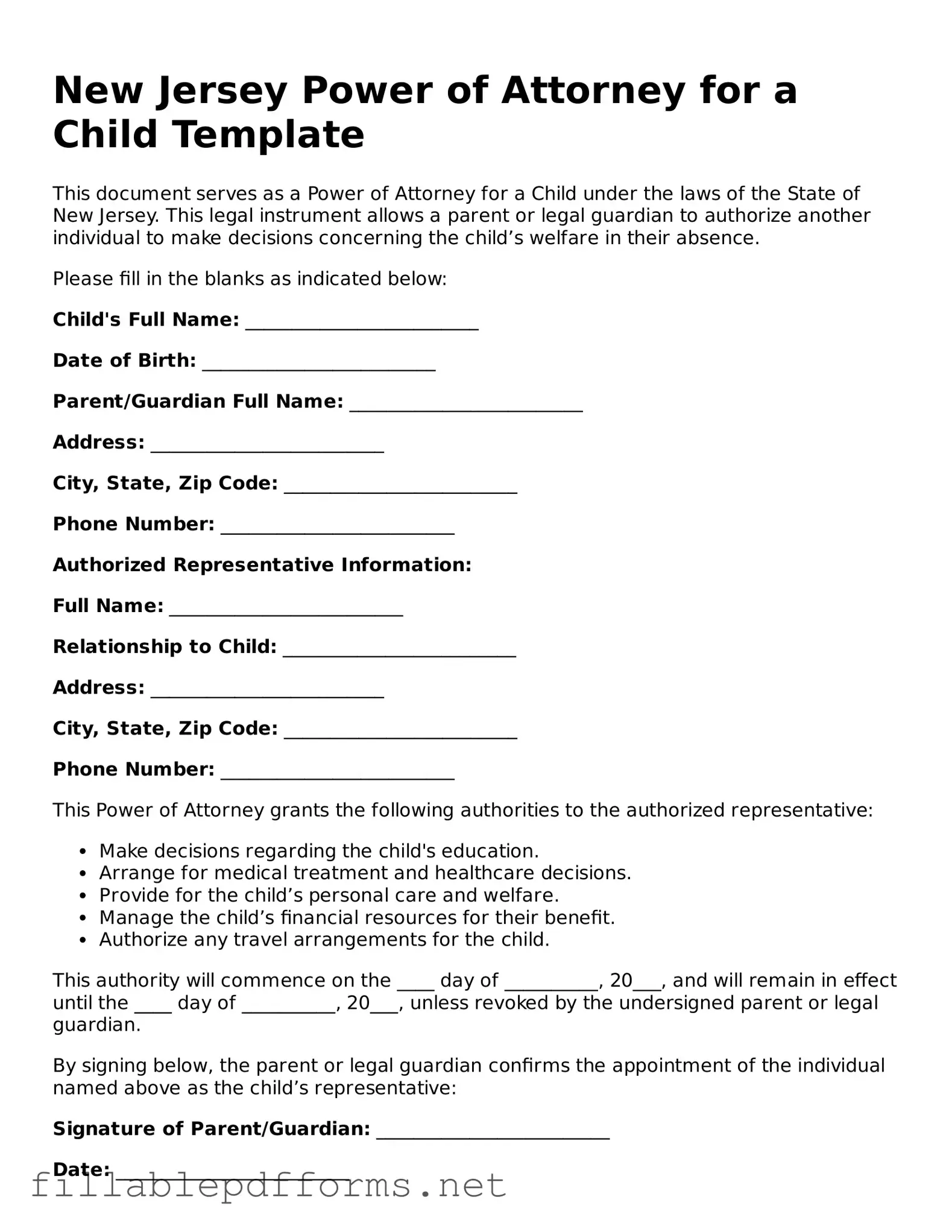Attorney-Verified Power of Attorney for a Child Form for New Jersey State
The New Jersey Power of Attorney for a Child form allows a parent or legal guardian to designate another adult to make decisions on behalf of their child. This legal document ensures that someone trusted can act in the child's best interest when the parent is unavailable. Understanding this form is crucial for parents who want to ensure their child's needs are met in their absence.
Launch Editor Here

Attorney-Verified Power of Attorney for a Child Form for New Jersey State
Launch Editor Here

Launch Editor Here
or
▼ Power of Attorney for a Child PDF
Almost there — finish the form
Complete Power of Attorney for a Child online fast — no printing, no scanning.